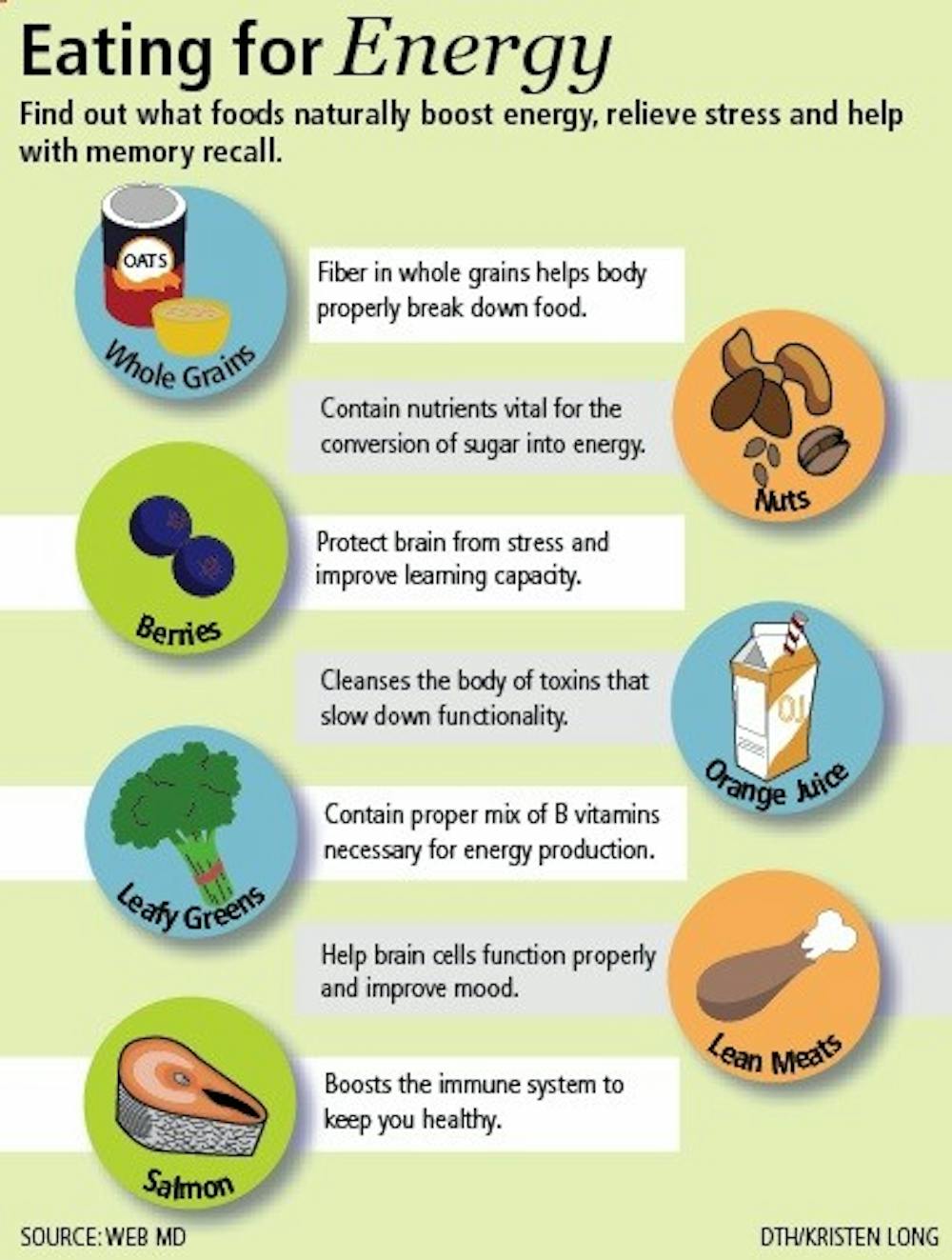Staff writer Reyna Desai sat down with Rebecca Rebmann, a sports nutritionist and dietician at Campus Health Services, to get her take on healthy habits during exams.
What types of eating habits should students adopt to stay healthy during exams?
Don’t skip meals. Your brain needs carbohydrates for energy, and if you skip meals you give it less energy when you need it the most. Eating a sandwich takes 5 minutes at the most, so you always have time to eat.
How large should meals be?
It’s better to have three smaller meals and two to three smaller snacks. Smaller meals are easier and quicker to digest. When you eat every few hours, your blood sugar stays regulated and your body doesn’t have to work overtime.
Which foods are energy rich?
Carbohydrates are what the body — primarily the brain — uses for energy. The starches, fruits and vegetables are important. Starches take a little longer to digest so the energy sticks around longer.
Fats cause an up and down reaction, and when blood sugar goes low, you feel the crash.
When is a bad time to eat?



